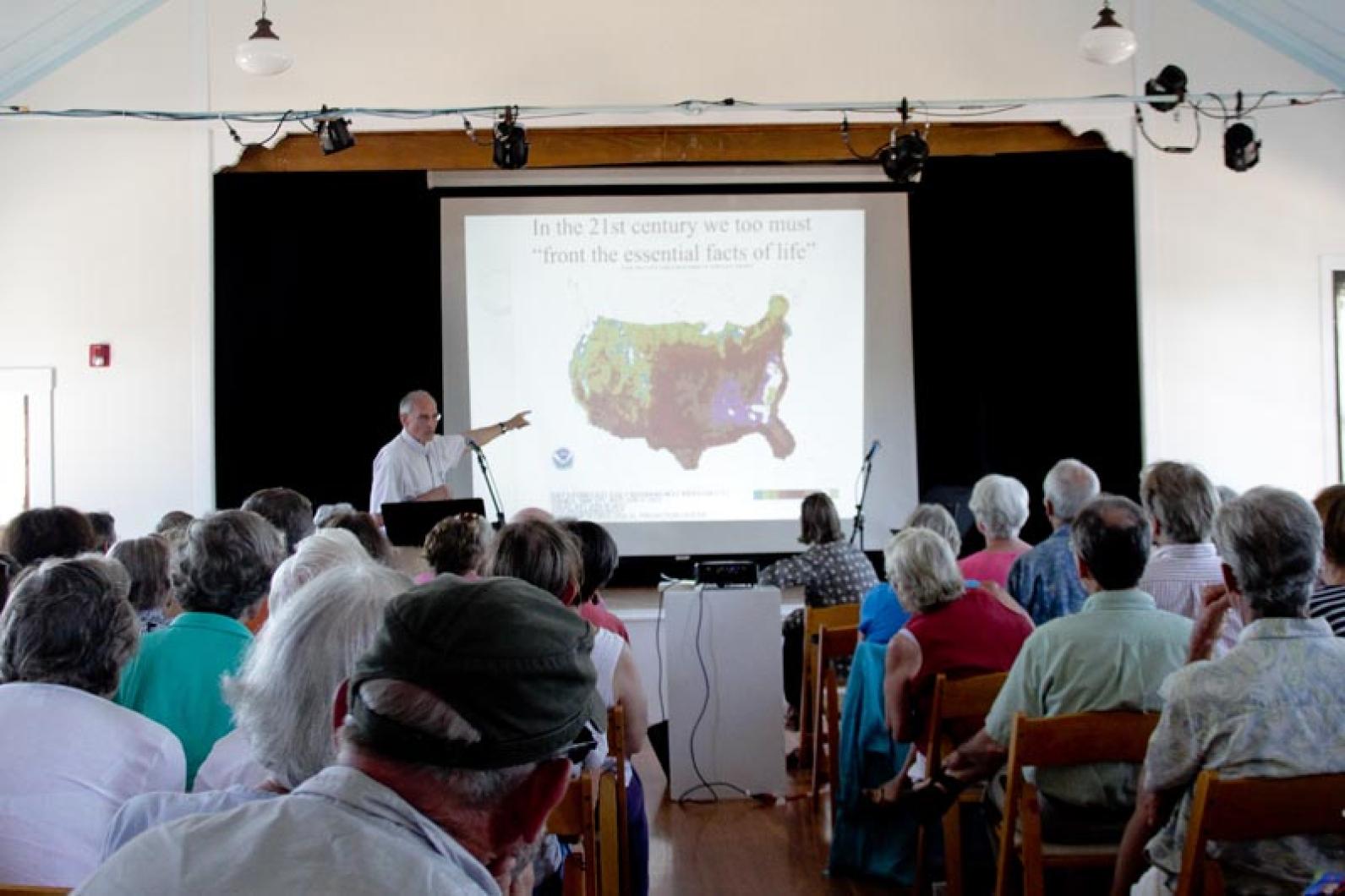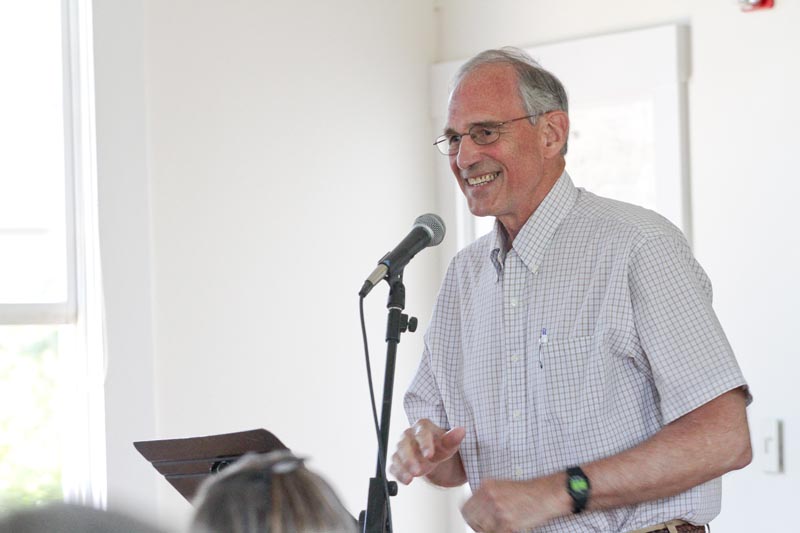The climate change activist Bill Moomaw believes Henry David Thoreau had it right — living deliberately and simply makes a difference. And like Thoreau, “we have to confront the essential facts of life,” Mr. Moomaw told an overflow crowd at the Grange Hall in West Tisbury on Monday night.
And it starts with awareness about the changing environment.
“Like Thoreau we must rethink our food, our mobility and our dwellings because these are all things we control, that we can do something about,” Mr. Moomaw said. “It’s a question of if we can shift from this problematic trajectory we’re on, or go on a different trajectory.”
The free talk was sponsored by the Vineyard Conservation Society.
Mr. Moomaw and his wife Margot Moomaw spoke about their experience working in the climate change field over the past 30 years and the choices they have made, both small and large, to live deliberately while reducing their carbon footprint.
Both are recognized leaders in their field. He directs the Center for International Environment and Resource Policy at the Fletcher School of Tufts University and was a coauthor of the Intergovernmental Panel on Climate Change. She is a green design consultant to homeowners and builders.
“It turns out this is not a problem that can be solved by governments acting alone; they can’t set a bunch of rules and hope it happens . . . what happens in between is probably best described as magic,” Mr. Moomaw said.
“Over the years I got more and more frustrated watching things not happen,” he continued. He said he and his wife decided to do something rather than “sit around to have the U.S. Senate pass a bill on cap and trade or a carbon tax . . . we can’t wait for another United Nations treaty to come in. Why don’t we just start?
“This is really about individuals taking action and changing the world one action at a time,” he said.
So what did they do?
Recognizing that in New England, housing and transportation are two of the largest contributors to climate change, the Moomaws said they decided to build their home in Williamstown as a net zero-energy building. They described the energy-efficient house, built to take full advantage of the warming sun in winter and natural cooling breezes in summer, a super-insulated building. “Many in New England say you can make a house too tight,” Mrs. Moomaw said, but she said with proper ventilation there should be no concerns. Their house was built on a moderate budget, they said, and they left much of the landscape undisturbed, allowing native trees and understory to replace formal landscaping that requires water and other energy-consuming maintenance techniques.
The Moomaws consciously do not run short errands, instead consolidating their errands into one or two trips, using less gasoline in the process.
Mr. Moomaw spoke about what he called the power of the atmosphere. The last week of June was one of the hottest in the country, he said, with temperatures setting record highs across the country — there were 40,000 record high temperatures that week and only 6,000 record low temperatures, a ratio of 7 to 1.
“If we weren’t experiencing global warming it would be one to one,” Mr. Moomaw said.
He predicted that by the year 2100, much of the country will see temperatures over 100 degrees for 22 weeks of the year, with New England experiencing these temperatures for about one week a year. By 2070, he predicted, the New England climate will more closely resemble the climate in present-day South Carolina.
“The path to a sustainable future requires us all to live deliberately,” Mr. Moomaw concluded. “I want to thank Thoreau for suggesting that to me in the first place.”






Comments
Comment policy »